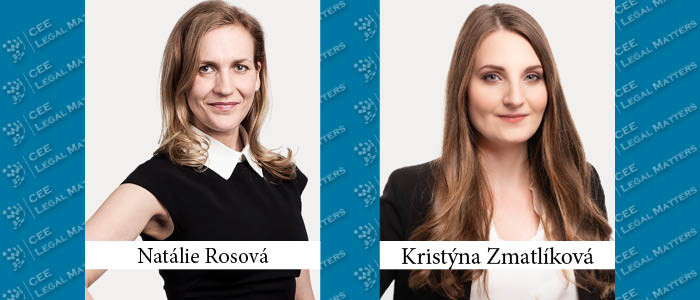Czech Class Actions Act already effective: who are the subjects of class actions in the Czech Republic?
The Czech Class Actions Act [1] became effective on 1 July 2024. Our introductory article on class actions in the Czech Republic provided an overview of key aspects of the new legislation. This part of our series will focus on the subjects of these proceedings: who can be the claimant, class member-related issues and practical implications for businesses.
Who can bring a claim?
Since the aim of class actions is to ensure the more efficient hearing of consumer claims against corporations and their enforcement on a large scale, the Czech Class Actions Act substantially simplifies the process of joining claims with similar factual and legal bases into a single proceeding, thereby reducing the financial cost for the claimants.
A class action may be filed only by non-profit organisations (the "NGO") registered with the Czech Ministry of Industry and Commerce (the "Ministry") or with the European Commission. [2] Lists of these organisations are publicly available online. As of the date of this article, no entity has yet been registered on the list of the Ministry.
To be registered, an NGO must meet several criteria, including the following:
- it must be active in consumer protection for at least 12 months;
- it must have a non-profit purpose;
- it must be independent from other entities or individuals having an economic interest in the filing of a class action; and
- it must have an anti-conflict of interest procedure in place.
At present, it is not clear how the Ministry will assess compliance with these criteria. Registration of NGOs should be completed within two months after a complete application has been filed. Czech legislation also provides for a simplified procedure for entities that were authorised to represent consumers in other types of collective enforcement; these entities must request to be registered on the list of the Ministry by 1 August 2024. Currently, the number of entities eligible for the simplified procedure is fewer than 10 and it remains to be seen which of them will actually apply for registration.
The NGO has full rights as the claimant. Consumers who may register their claims with the NGO or the court, thereby becoming class members, have only limited rights within the class action. These rights include receiving information on the procedure, commenting on the subject and process of the class action and filing objections to the settlement proposal.
Consumers' participation – what claims are eligible?
Consumers may opt into the class action by submitting an application. The class needs to have at least 10 members – a significant drop compared to the original draft bill, which called for at least 20 members.
Registered claims are eligible if they are based on at least a similar factual and legal basis. This means that the claims and interests of the consumers must arise from a similar factual background and similar questions must be raised during the legal assessment of the nature and eligibility of the claims.
The Czech Class Actions Act allows only disputes concerning rights and legitimate interests arising after 24 November 2020 to be subject to class actions.
Class members – not only consumers!
A surprising change is the shift from initial exclusive targeting of B2C relationships, which would be in line with the EU Directive [3] implemented by the Czech Class Actions Act.
The Czech Class Actions Act brings into play not only consumers in traditional sense but also small businesses. Small companies employing less than 10 employees and with an annual turnover or annual balance sheet sum not exceeding CZK 50m (approx. EUR 2m) are considered consumers as well. When we use the term "consumer" in this article, it also includes small businesses, as anticipated by the Czech Class Actions Act.
What to watch out for?
A key step in preparing for potential class actions challenges is the analysis of the products and services offered by corporations to consumers, including the underlying documentation. This involves assessing the risks of potential disputes concerning consumers' rights and their possible similarity basis. If the analysis reveals systemic defaults with class action potential, it is advisable to develop a strategy to address specific class action challenges, including preparation for settlement solutions with consumers/NGOs.
In addition, corporations potentially exposed to class actions challenges should follow the development of registration of NGOs authorised to file class actions on the list of the Ministry or the European Commission. This may provide valuable insights into the elementary characteristics of potential claimants, their focus on specific industry areas or specific legal issues, including the attributes of class members.
[1] Act No. 179/2024 Coll., on Collective Civil Proceedings.
[2] If it is an entity authorised to file class actions in other EU Member States.
By Natalie Rosova and Kristyna Zmatlikova, Attorneys at Law, Schoenherr




